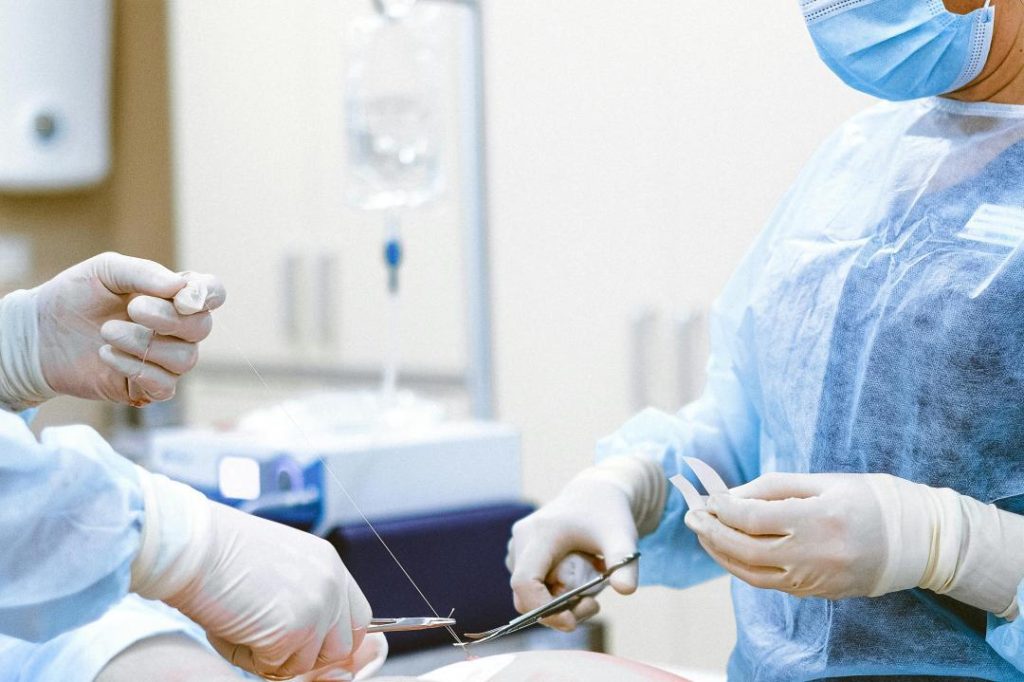
Experts Say Protein Before Surgery Boosts Recovery
When it comes to joint surgery, older adults often face a daunting challenge: regaining strength and mobility after the procedure. For many, the road to recovery can be long and arduous, with setbacks and frustration along the way. However, a growing body of research suggests that there may be a simple and effective way to improve outcomes: eating more protein around the time of surgery.
Protein-rich diets and supplements, such as amino acids and HMB (beta-hydroxy beta-methylbutyrate), have been shown to reduce muscle loss, improve movement, and support better healing after procedures like hip or knee replacements. In this blog post, we’ll delve into the science behind this phenomenon and explore the potential benefits for older adults undergoing joint surgery.
The Importance of Muscle Strength
For older adults, maintaining muscle strength is crucial for overall health and well-being. As we age, our muscles naturally lose mass and function, a process known as sarcopenia. This decline can lead to a range of problems, including decreased mobility, balance, and flexibility, as well as increased risk of falls and fractures.
Joint surgery, such as hip or knee replacements, can exacerbate this issue by causing further muscle loss and weakness. This is because the surgical procedure can lead to a period of immobility, during which muscles are not used and can atrophy. Additionally, the body’s natural response to injury can include an increase in inflammation and muscle breakdown, which can further compromise muscle function.
The Role of Protein in Muscle Recovery
Protein plays a critical role in muscle recovery and growth. When we consume protein, our bodies break it down into amino acids, which are then used to build and repair muscles. Adequate protein intake is essential for promoting muscle growth and strength, as well as for supporting the healing process.
In the context of joint surgery, protein-rich diets and supplements have been shown to have several benefits. For example, studies have found that patients who consume higher amounts of protein after surgery experience:
- Less muscle loss and weakness
- Improved mobility and movement
- Faster recovery times
- Reduced risk of complications, such as infections and blood clots
The Science Behind Protein-Rich Diets and Supplements
So, how do protein-rich diets and supplements promote muscle recovery after joint surgery? The science is complex, but here’s a brief overview:
- Amino Acids: Amino acids are the building blocks of protein. When we consume protein-rich foods or supplements, our bodies break down the amino acids into smaller components, which can then be used to build and repair muscles.
- HMB: HMB (beta-hydroxy beta-methylbutyrate) is a metabolite of the amino acid leucine. It has been shown to have anti-catabolic effects, meaning it helps to reduce muscle breakdown and promote muscle growth.
- Inflammation Reduction: Protein-rich diets and supplements have been shown to reduce inflammation in the body, which can occur in response to joint surgery. By reducing inflammation, these interventions can help to promote a faster and more successful recovery.
- Muscle Protein Synthesis: Protein-rich diets and supplements can stimulate muscle protein synthesis, a process by which our bodies build new muscle tissue. This is particularly important after joint surgery, when muscle loss can occur.
Real-World Applications
So, what does this mean for older adults undergoing joint surgery? Here are some practical takeaways:
- Eat Protein-Rich Foods: Focus on consuming protein-rich foods, such as lean meats, fish, eggs, dairy products, and legumes.
- Supplement with Amino Acids and HMB: Consider supplementing with amino acids and HMB to support muscle recovery and growth.
- Consult with a Healthcare Provider: Before starting any new supplements or making significant changes to your diet, be sure to consult with a healthcare provider or registered dietitian.
Conclusion
Eating more protein around the time of joint surgery can have a significant impact on recovery outcomes for older adults. By reducing muscle loss and improving movement, protein-rich diets and supplements can help to support a faster and more successful recovery. As the global population ages, it’s essential that we prioritize strategies that promote healthy aging and support optimal health outcomes.
Source:
https://thepfc.club/blogs/news/how-protein-rich-diets-can-boost-recovery-after-surgery






